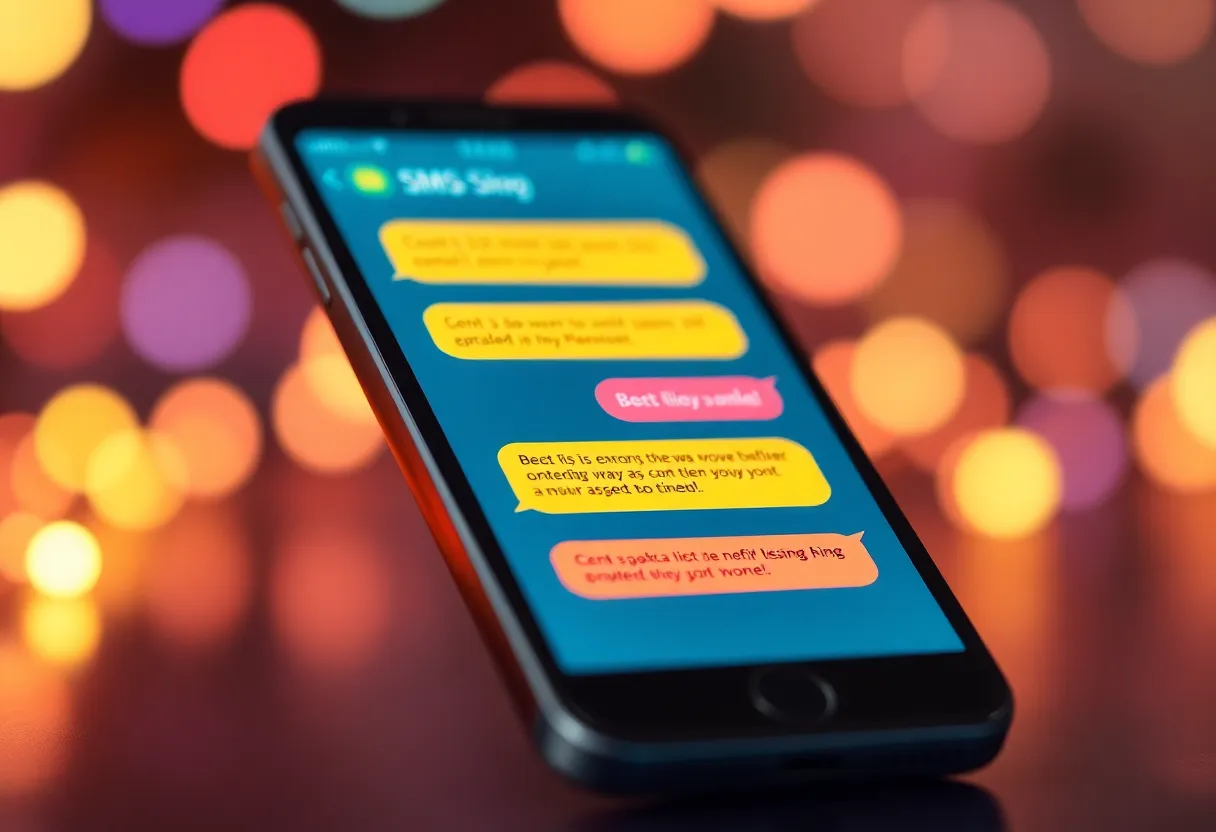How Can You Use SMS Marketing to Increase Engagement in Your Digital Marketing Strategy?
In the current digital landscape, businesses are constantly seeking innovative strategies to enhance customer engagement. SMS marketing has emerged as a potent tool designed to penetrate directly into customers’ hands, providing an immediate and effective means of communication. This article explores how you can leverage SMS marketing to boost engagement within your digital marketing strategy.
Understanding SMS Marketing
SMS marketing involves sending promotional messages via text to consumers. Unlike emails that may remain unopened for hours or days, SMS messages have a staggering open rate of approximately 98%. This high engagement rate makes SMS an attractive channel for marketers aiming to enhance their communication tactics.
Key Benefits of SMS Marketing
- High Engagement Rates: With easy access to mobile phones, marketers can expect immediate engagement.
- Direct Communication: SMS provides a straightforward way to reach customers without the complexities of other digital platforms.
- Personalized Messaging: Tailored messages can meet individual customer needs, boosting response rates.
- Cost-Efficiency: Compared to other marketing channels, SMS marketing is often more affordable.
Integrating SMS Marketing into Your Digital Strategy
To effectively incorporate SMS marketing, consider these key tactics.
1. Collect Opt-Ins
The first step in any successful SMS marketing campaign is obtaining customer consent. This can be achieved through sign-up forms on your website, social media campaigns, or during in-store visits. Ensure that users understand what they are signing up for, emphasizing the value they will receive from your messages.
2. Segment Your Audience
By categorizing your subscribers based on interests, purchases, or demographics, you can tailor your messages. This approach not only increases engagement but also reduces the likelihood of unsubscribes. For example, sending exclusive promotional offers for beauty products to customers who have previously purchased from that category can yield high response rates.
3. Personalize Your Messages
Incorporating personalization in your SMS campaigns can drastically impact engagement levels. Utilize the recipient’s name, and leverage their past interactions with your brand for more relevant messaging. When customers feel valued, they are more likely to engage.
Content Strategies for SMS Marketing
The content you send via SMS should be engaging, concise, and actionable. Here are some effective strategies:
1. Exclusive Offers and Discounts
Consider sending limited-time promotions or exclusive discounts to your subscribers. This strategy creates a sense of urgency that encourages customers to act quickly.
2. Event Reminders and Alerts
Leverage SMS to remind your subscribers about upcoming events or new product releases. This timely information not only keeps your brand top-of-mind but also drives attendance and participation.
3. Surveys and Feedback
Engaging with your customers also means listening to them. Use SMS to conduct short surveys or gather feedback. This strategy not only encourages interaction but also provides valuable insights into customer preferences.
Best Practices for Effective SMS Marketing
To maximize your SMS marketing efforts, adhere to these best practices:
1. Keep Messages Concise
With character limits in mind, ensure your messages are short yet impactful. Aim for clarity while providing essential information. This approach respects your subscribers’ time and boosts response rates.
2. Include a Clear Call to Action
Every SMS should have a purpose. Whether it’s encouraging a purchase, directing customers to your website, or asking for feedback, ensure that the call to action is straightforward and compelling.
3. Timing is Critical
Consider the timing of your messages for maximum effectiveness. Analyze engagement patterns to determine optimal times for sending texts. For instance, sending promotional messages during lunch breaks may increase the chances of engagement.
Measuring the Success of SMS Marketing Campaigns
To determine the effectiveness of your SMS marketing efforts, it is vital to measure key performance indicators (KPIs). Here are some metrics to consider:
1. Open Rate
One of the most significant advantages of SMS marketing is its high open rate. Monitor how many recipients engage with your messages as a measure of effectiveness.
2. Click-Through Rate (CTR)
If you include links in your SMS, track the CTR to evaluate how many subscribers acted on your call to action. This metric provides insights into the relevancy of your content.
3. Conversion Rate
The ultimate goal is often conversion. Track how many recipients complete the desired action, such as purchasing a product or signing up for an event, directly from your SMS campaign.
Potential Pitfalls to Avoid in SMS Marketing
While SMS marketing can drive engagement, it is crucial to navigate potential pitfalls:
1. Over-Messaging
Bombarding customers with frequent messages can lead to unsubscribes. Maintain a balanced communication strategy to keep your audience engaged without overwhelming them.
2. Ignoring Regulations
Ensure compliance with regulations related to SMS marketing, such as obtaining consent and providing opt-out options. Failure to adhere to these laws can lead to fines and damage your reputation.
3. Lack of Testing
Always test your SMS campaigns before launching. Evaluate different messages, offers, and timing to identify what resonates best with your audience.
Future Trends in SMS Marketing
As technology continues to evolve, so does SMS marketing. Here are some emerging trends to keep in mind:
1. Automation
Implementing automated SMS campaigns allows businesses to engage customers at appropriate times without manual intervention. Automation can help with welcome messages, order confirmations, and appointment reminders.
2. Integration with Other Channels
Seamlessly integrating SMS marketing with email and social media campaigns enhances overall engagement. For example, sending SMS reminders alongside email newsletters can reinforce your message.
3. Rich Media Messaging (RCS)
Rich Communication Services (RCS) is an upgraded version of SMS. RCS allows for interactive messages that can include images, carousels, and other media elements. As adoption increases, businesses should consider the potential of RCS to create richer customer experiences.
Conclusion
Incorporating SMS marketing into your digital marketing strategy can significantly increase customer engagement. By implementing effective practices, respecting customers’ preferences, and measuring your success, businesses can create more dynamic interactions that foster loyalty and drive results. As SMS continues to evolve, marketers must remain adaptable and innovative to harness its full potential.







